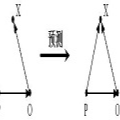Knowledge Graphs (KGs) are symbolically structured storages of facts. The KG embedding contains concise data used in NLP tasks requiring implicit information about the real world. Furthermore, the size of KGs that may be useful in actual NLP assignments is enormous, and creating embedding over it has memory cost issues. We represent KG as a 3rd-order binary tensor and move beyond the standard CP decomposition by using a data-specific generalized version of it. The generalization of the standard CP-ALS algorithm allows obtaining optimization gradients without a backpropagation mechanism. It reduces the memory needed in training while providing computational benefits. We propose a MEKER, a memory-efficient KG embedding model, which yields SOTA-comparable performance on link prediction tasks and KG-based Question Answering.
翻译:知识图(KGs) 是象征性的、结构化的事实存储。 KG 嵌入包含在 NLP 任务中使用的简明数据, 需要关于真实世界的隐含信息。 此外, 在实际 NLP 任务中可能有用的 KGs 规模巨大, 并在它上嵌入有内存成本问题 。 我们将 KG 代表为三阶二进制加仑, 并使用数据专用通用版本, 超越标准的CP 分解。 标准的 CP- ALS 算法的概括化允许在不设反向调整机制的情况下获取优化梯度。 它减少了培训所需的记忆, 并提供了计算效益 。 我们提议了 MEKER, 即一个记忆高效的 KG 嵌入模型, 使 SOTA 在将预测任务和基于 KG 的质答上具有可比性的可比较性能 。





